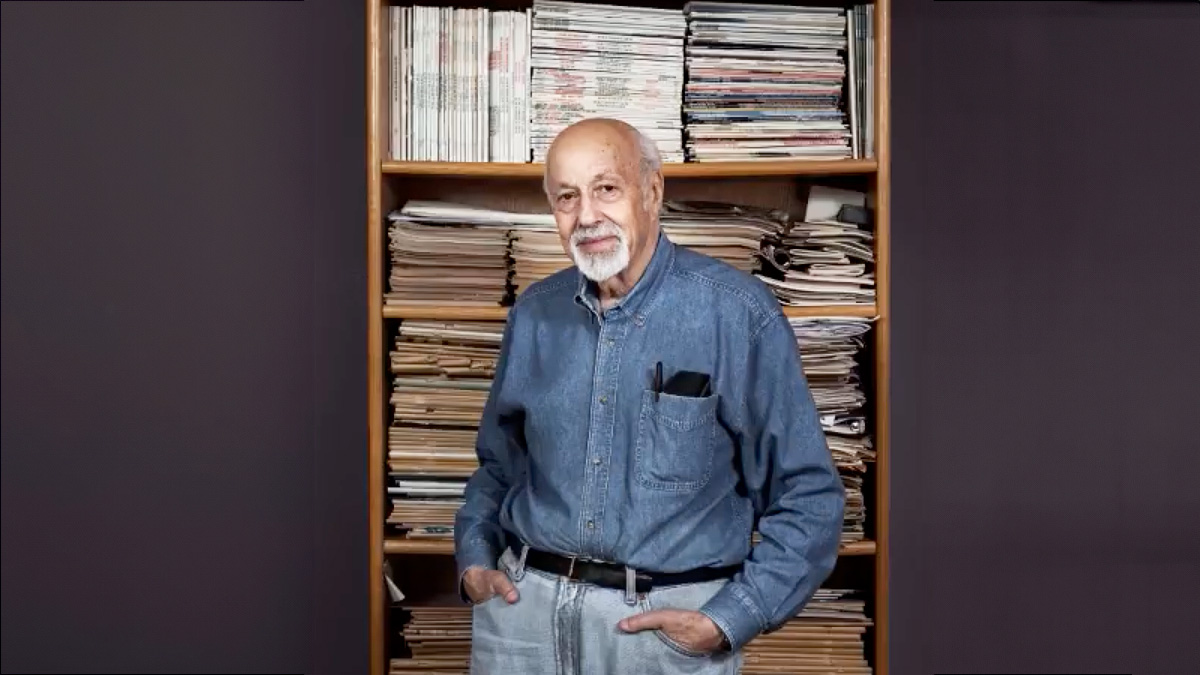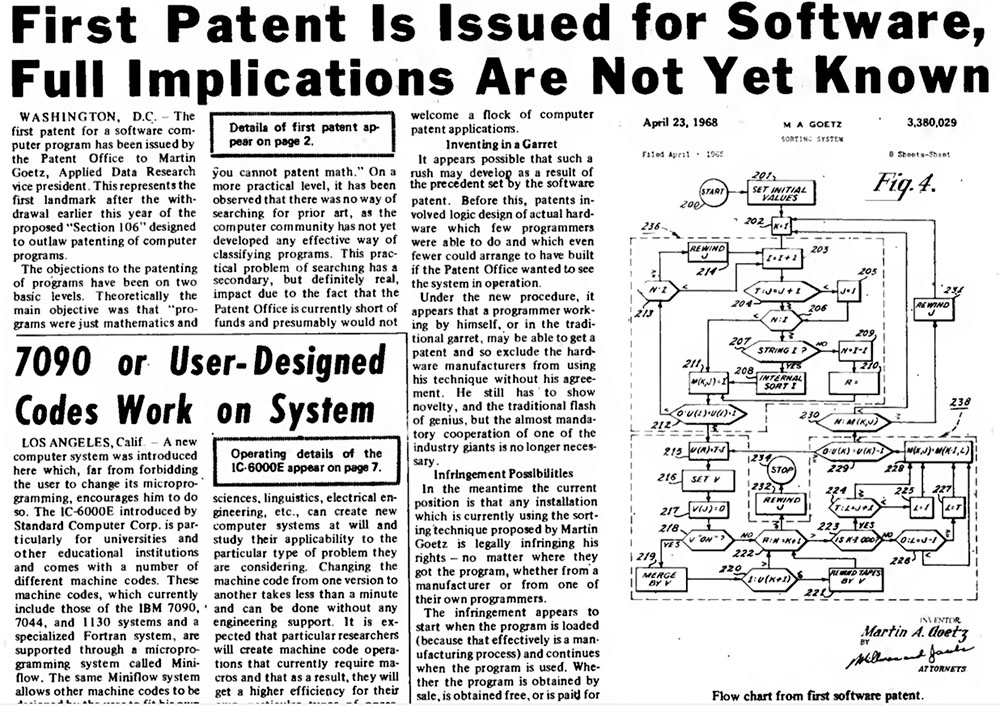
Martin Goetz, regarded as the pioneer of third-party software, passed away at the age of 93.
He is best known for obtaining the first software patent in the United States in 1968, a move that paved the way for the transformation of the software industry as we know it today.
Having entered the computer industry in its early days in the 1950s, Goetz worked as a developer on UNIVAC mainframe computers.
In 1968, nearly a decade after founding his company Applied Data Research (ADR), his patent for mainframe computer software was granted. This news made headlines at the time, as software had not previously been considered a patentable product.
Filed in 1965, Goetz’s patent was for a data sorting algorithm, which was crucial in the era of magnetic tapes because efficient data writing reduced the number of read and write operations, thus speeding up tasks. His sorting system is often regarded as the first commercially sold software product.
Goetz’s determination to patent his software was partly a defensive move to prevent industry giants, particularly IBM, from copying his work.

In 1969, his company filed a lawsuit against IBM for monopolistic practices, accusing the firm of setting a single price for its hardware and software, implying that software was given away for free.
This action led to a series of legal battles, following which IBM eventually agreed to separate software from its hardware offerings. The impact of this decision was significant, allowing other software companies to operate without being overshadowed by industry giants.
Martin Goetz’s actions created unprecedented opportunities for many developers and software companies at the time. Thanks to his efforts, software was recognized as a standalone product, distinct from the hardware with which it was often bundled.
Today, while many view software patents as a constraint, Goetz’s impact on the industry is undeniable. His work allowed the detachment of software development from an anti-competitive hardware industry, paving the way for innovation and growth in the sector.
Also read on The Coding Love:
- ✋ Microsoft and Amazon join forces to dismantle a vast Indian scammer network
- Microsoft creates revolutionary technology capable of storing data in glass for 10,000 years
- 💸 Despite its price, GitHub Copilot costs the platform millions
- 🐂 Ubuntu 23.10 Mantic Minotaur is now available



